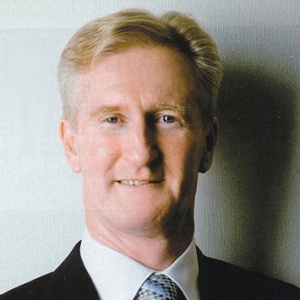PATA President Greg Duffell resigns

President and CEO Greg Duffell has submitted his resignation from the Pacific Asia Travel Association, effective February 2011.
The move comes short of his three-year contractual term which was due for completion at the end of 2011. Following the decision Duffell told Thailand’s TTR Weekly that he believes the job he had been hired to do of “cleaning house” at PATA, had been done and that the job of “rebuilding the house” should now be done by someone else.
PATA will be aiming to fill the chief executive vacancy ahead of its 60th anniversary conference in Beijing in April 2011.
However, PATA chairman Hiran Cooray of Sri Lanka feels that, if the organisation can have a new CEO in place soon, the 60th anniversary event can still become a platform for PATA to relaunch itself into a new era and deal with all the industry challenges shaping up in the second decade of the 21st century.
Duffell, 49, officially took over in February 2009 after being confirmed by the PATA board in Hyderabad in October 2008.
During his term, he brought in a finance director and communications director, undertook cost-cutting and restructuring programmes, relaunched the website and also fired many underperforming staff.
ADVERTISEMENT
Asia spearheads world recovery
With PATA Travel Mart 2010 in Macau drawing to a close, the mood of Asia tourism was buoyant - with more than 300 buyers and 500 sellers making the event one of the most successful yet.
Duffell said this showed that Asia is leading the world tourism recovery.
He said: “According to our latest data, the Asia Pacific region registered an increase of 11 per cent in total arrivals for the first half of 2010. Just in June, arrivals progressed by a stunning 17 per cent. We see good growth all across the continent with arrivals up by 30 percent in Macau, by 44 percent in Hong Kong, by 48 percent in Sri Lanka, or by 16 percent in Nepal.”
He added: “Asia is not only leading world tourism recovery, but it is also leading countries out of the recession. Tourism demonstrates more than ever how vital it can be for countries’ economies,” he added.
However the repaid recovery is leading to a shortfall of trained staff within the industry, with many destinations in the region already struggling with staff shortages, according to Duffell.
He also called upon PATA members to prioritise the impact of tourism activities on the environment. “Concrete action must continue to ensure the future of our world. We challenge our members to do something,” he said.
In Macau, PATA launched a dedicated website for its 60th anniversary year. The site, www.pata60.org, is home to a variety of competitions, activities, and events built around the anniversary theme.
A further initiative is the “Tomorrow’s Tourism” competition inviting students from PATA member educational establishments to submit a five-minute video presentation with their ideas for a more sustainable model of tourism development.
Corporate Social Responsibility was the topic of discussion on the final day of the PATA Travel Mart 2010’s luncheon workshop.
A panel of industry leaders discussed how community involvement and social and environmental responsibility are now becoming key factors in the decision-making process of today’s travellers – and why we need to address them.
Far from a passing fad, increasingly CSR is influencing how and where people choose to travel, the creation of new travel opportunities and products, and increasing tourism’s role as a force for good.
John King, chairman, PATA’s Corporate Responsibility and Sustainability Committee said: “As tourism increasingly impacts both positively and adversely on communities and the social well being of people, the issue of corporate social responsibility is increasingly one for the tourism industry to consider. Rather that just being an added responsibility, CSR creates new opportunities for destinations as well as the industry.
“The session that was held during PTM explored the scope and issues for the tourism industry involved with CSR and some of the opportunities it presents,” he concluded.

